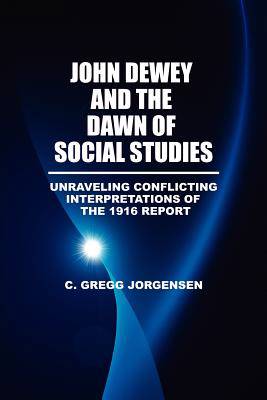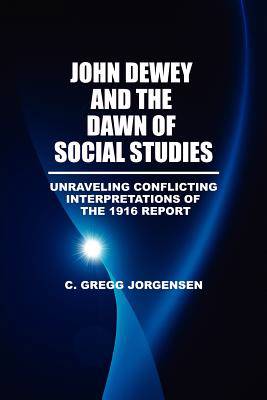
- Afhalen na 1 uur in een winkel met voorraad
- Gratis thuislevering in België vanaf € 30
- Ruim aanbod met 7 miljoen producten
- Afhalen na 1 uur in een winkel met voorraad
- Gratis thuislevering in België vanaf € 30
- Ruim aanbod met 7 miljoen producten
Zoeken
John Dewey and the Dawn of Social Studies
Unraveling Conflicting Interpretations of the 1916 Report
C Gregg Jorgensen
€ 84,95
+ 169 punten
Uitvoering
Omschrijving
Founding documents-namely, the 1916 Report on Social Studies-is the focus of John Dewey and the Dawn of Social Studies: Unraveling Conflicting Interpretations of the 1916 Report which examines the Report in order to determine how it has been interpreted and regarded over time. The underlying question involved is: "Which interpretation, or interpretations, most embodies the intent, goals, and purpose of the 1916 Committee?" Key members of the 1916 committee have been identified for extended research and analysis. One additional individual frequently quoted throughout the Report, John Dewey, received special consideration owing to his stature and influence in the U.S. and throughout the world. The wide variety of interpretations was examined within an organizational framework utilized to discuss and analyze the broad spectrum of interpretations that exist. This examination encompassed the existing viewpoints, the meaning and intent of the 1916 committee, as well as the social and political aspects of the era. The overarching intent of founding documents, in this case the 1916 Report, is to make sense of the various scholarly interpretations and offer insights as to whether or not a consensus of opinion among scholars exists. Like all important founding documents whose authors have long since passed through the veil of history, but whose work continues to influence, we, as scholars, social studies and history educators, and curriculum and instruction researchers, want to know whose ideas are at the forefront of social studies-one of the most contested academic fields of study in America.
Specificaties
Betrokkenen
- Auteur(s):
- Uitgeverij:
Inhoud
- Aantal bladzijden:
- 196
- Taal:
- Engels
- Reeks:
Eigenschappen
- Productcode (EAN):
- 9781617357169
- Verschijningsdatum:
- 31/01/2012
- Uitvoering:
- Paperback
- Formaat:
- Trade paperback (VS)
- Afmetingen:
- 156 mm x 234 mm
- Gewicht:
- 281 g

Alleen bij Standaard Boekhandel
+ 169 punten op je klantenkaart van Standaard Boekhandel
Beoordelingen
We publiceren alleen reviews die voldoen aan de voorwaarden voor reviews. Bekijk onze voorwaarden voor reviews.











